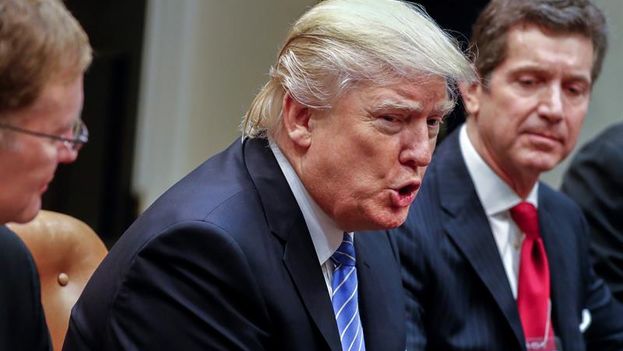
![]() Ana Navarro, a CNN analyst, says that Donald Trump must stop behaving like a “mean girl.” She was referring to the president’s latest tweets against Joe Scarborough and Mika Brzezinski, hosts of Morning Joe, a popular morning show on MSNBC. Trump called Joe a “psycho” with low audience ratings (which is false). He called Mika a “crazy” woman with a “low IQ” (also false) whose face bled after a recent plastic surgery.
Ana Navarro, a CNN analyst, says that Donald Trump must stop behaving like a “mean girl.” She was referring to the president’s latest tweets against Joe Scarborough and Mika Brzezinski, hosts of Morning Joe, a popular morning show on MSNBC. Trump called Joe a “psycho” with low audience ratings (which is false). He called Mika a “crazy” woman with a “low IQ” (also false) whose face bled after a recent plastic surgery.
This is not a question of Trump against the leftist press. Ana Navarro is a Republican analyst, a lawyer, raised in Miami, former ambassador of Nicaragua, her native country, on the Human Rights Commission in Geneva, where she effectively defended dissidents and persecuted citizens of Cuba and other countries. Later, she was hired by CNN to tell her point of view, always moderately conservative, clever and amusing vs. other democratic versions farther to the left.
Scarborough and Brzezinski, a couple on-screen and off it, are also close to the Republican world although Mika is a Democrat. Before being a TV host, Joe was a lawyer, elected four times to the U.S. Congress by the Republican Party, to which he still belongs. Mika is the daughter of the late strategist Zbigniew Brzezinski, a professor at Columbia University and czar of U.S. diplomacy during the Jimmy Carter administration.
In the Spanish theater of the Renaissance, the word “decorum” described the congruence between the post held by a character and the language or costume used onstage. The list of Republican leaders concerned by the lack of decorum shown by President Trump is impressive: Paul Ryan, Speaker of the House; senators Lindsey Graham, Ben Sasse and John McCain; representative Ileana Ros-Lehtinen, and I’ll stop writing names so as not to turn this article into a boring telephone book.
The argument made by Ana Navarro and numerous other Republican figures is that Trump’s behavior is not proper for a White House tenant. Just as, during the campaign, it was not proper to tack nicknames onto the names of adversaries or mock a critical journalist who suffered a neurological syndrome that produced spastic movements. That’s just not done. It’s something typical of yokels, not of true statesmen, even if it’s useful to gain the votes of a certain type of voter who lacks empathy.
In the 1950s there was a legend that the U.S. political parties might face off harshly, but when it came to National Security they acted in concert. Not true. It never was true. American parties are like other parties in the rest of the world and carry their conflicts everywhere.
Nevertheless, there is a fundamental difference in favor of the American experience. The legislators on the ruling benches in the U.S., both in the House and the Senate, are not obligated to obey the president when the time comes to vote. The idea of representative democracy in this country is that the politicians represent those who elected them, not the parties of which they’re members. For that reason, Trump — although he holds an absolute majority in both chambers — does not have the votes he needs to replace the health plan known as Obamacare.
I suspect that the conflict between Trump and the party that sponsored him will grow. That’s what a Republican congressman tried to say when he told me confidentially: “I can’t wait for the year 2020, when this nightmare will come to an end.” He was hoping that Trump will be a one-term president.
Translation from the Interamerican Institute for Democracy
